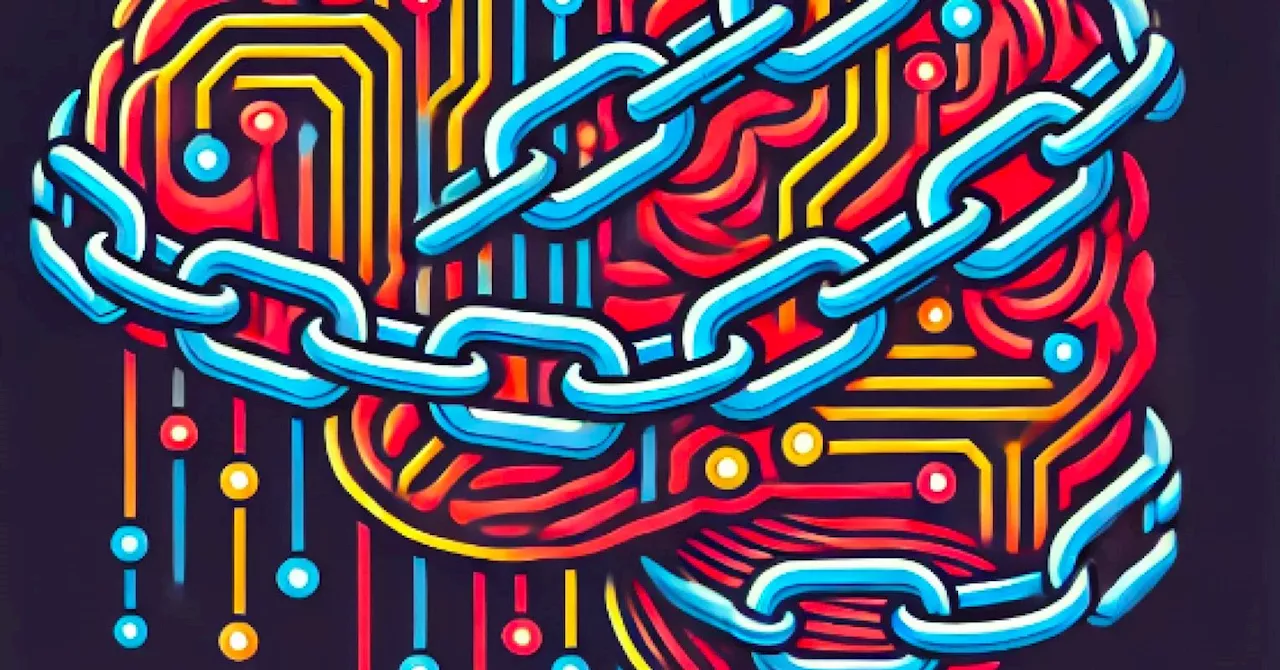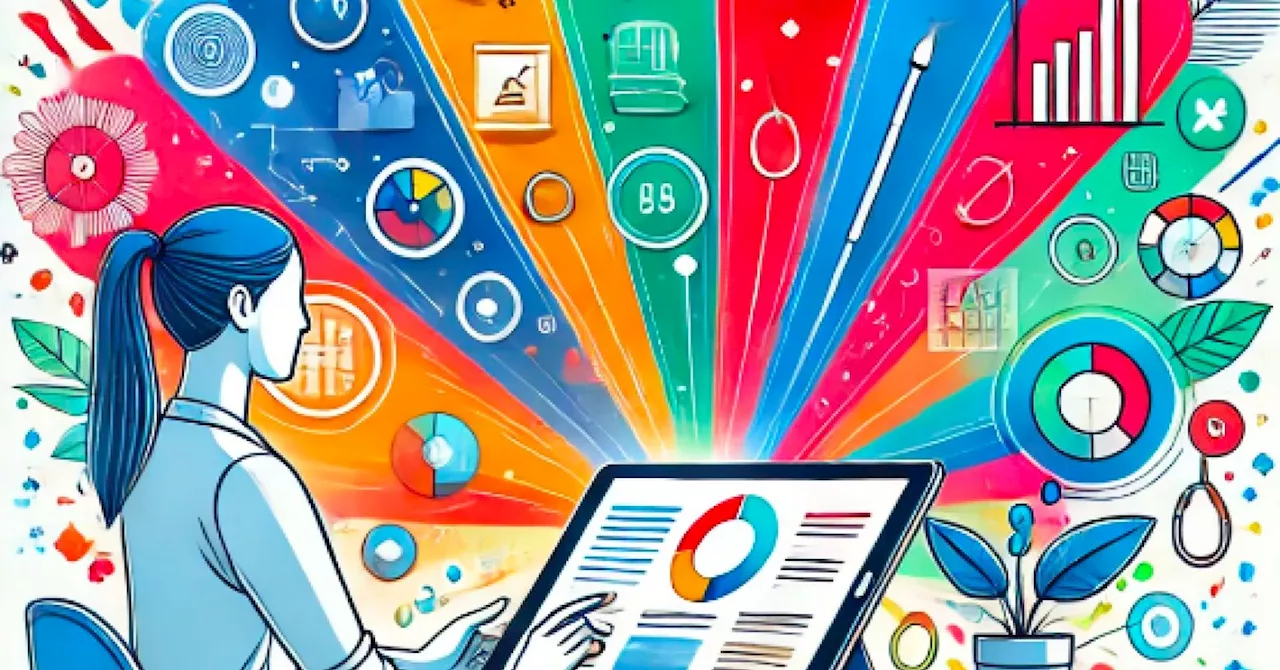This article explores how large language models (LLMs) are transforming clinical decision-making by fostering iterative, reflective processes in physicians. The findings demonstrate that AI-augmented doctors spend more time per case, leading to improved accuracy without compromising efficiency. LLMs broaden clinical perspectives, challenge assumptions, and stimulate innovative thinking, ultimately enhancing patient care.
LLMs foster deeper clinical reasoning, prompting iterative, reflective decision-making in physicians. AI-augmented doctors score higher, spending 119 seconds more per case, improving accuracy without rushing. AI isn't just another clinical tool—it's a transformative force reshaping how clinicians approach patient care. Among the most exciting developments is the advent of large language models (LLMs)—tools that have relevance to both clinicians and patients.
And while much of the discourse has been about 'faster and better,' AI is evolving from a solo cognitive task to an iterative dialogue between the physician and AI. Where doctors once relied solely on clinical expertise and static resources, they now engage in a dynamic exchange with LLMs that challenges assumptions and expands thinking. With medical knowledge increasing exponentially, this iterative approach helps physicians process vast amounts of information while maintaining clinical judgment. The evidence is compelling and fascinating. In this trial of 92 physicians, those using GPT-4 spent 119.3 seconds longer per case. Rather than slowing efficiency, this represents a new form of thought process where AI prompts deeper analysis and alternative perspectives. The physician poses initial thoughts, the LLM responds with additional considerations, and this back-and-forth creates a richer clinical reasoning process. This collaborative approach highlights the potential of LLMs to enhance clinical decision-making. One of the most compelling aspects of LLM integration is its ability to broaden the clinical perspective. Traditional resources, while invaluable, are often limited by the scope and immediacy of human and experience. LLMs, on the other hand, draw on an extensive corpus of medical literature and real-world data, providing a panoramic view that can challenge entrenched assumptions and stimulate innovative thinking. Further, this trial included a third arm testing LLM performance without physician input. Intriguingly, LLM-augmented physicians and LLMs working independently achieved similar scores (mean difference=-0.9%, 95% CI=-9.0 to 7.2, P=0.8). Both groups outperformed physicians using conventional resources alone, suggesting that LLM integration—whether as a collaborative tool or an independent system—can enhance clinical reasoning beyond traditional methods. Critics might argue that longer deliberation—averaging 119.3 seconds more per case in the trial—could slow down the clinical workflow. However, this increase in time spent per case may actually represent an investment in accuracy and safety. In an era where medical errors can have dire consequences, a more deliberate decision-making process is not a luxury—it's a necessity. By providing a structured framework that encourages physicians to pause, reflect, and consider all facets of a case, LLMs help mitigate the risks associated with hasty or incomplete decisions. This balance between speed and accuracy is crucial. The goal isn't to replace the physician's judgment but to augment it, ensuring that each decision is underpinned by the most current and comprehensive data available. With a statistically significant improvement in reasoning scores (P< 0.001), the evidence suggests that this additional deliberation time can translate to measurably better clinical decision-making. Looking ahead, the integration of LLMs into clinical practice represents a fundamental shift. These systems have the potential to democratize knowledge, breaking down traditional silos and fostering interdisciplinary collaboration. A confidence interval (2.7 to 10.2) for improvement in clinical reasoning suggests that LLM assistance consistently enhances physician performance across various scenarios and specialties. However, as with any emerging technology, responsible integration is critical. The promise of LLMs lies in their ability to augment human, not override it. Ensuring transparency, accountability, and validation in real-world settings will be essential as these tools become more deeply embedded in clinical workflows. Incorporating LLMs into medical decision-making transcends mere technological advancement—it's rekindling the art of thoughtful medicine. But perhaps more resonant is how LLMs may be helping physicians rediscover the joy of intellectual exploration in medicine. By creating space for reflection and deeper reasoning, these tools aren't just improving outcomes—they're transforming the experience of practicing medicine itself
Technology LARGE LANGUAGE MODELS CLINICAL REASONING AI HEALTHCARE MEDICAL DECISION-MAKING
United States Latest News, United States Headlines
Similar News:You can also read news stories similar to this one that we have collected from other news sources.
 Can LLMs "capture" human thought?Are LLMs the perfect cognitive partner or a trap where we slowly surrender our intellectual independence?
Can LLMs "capture" human thought?Are LLMs the perfect cognitive partner or a trap where we slowly surrender our intellectual independence?
Read more »
 Poisoning AI: Medical LLMs Vulnerable to Data ManipulationA new study reveals the alarming ease with which medical LLMs can be manipulated through data poisoning, highlighting the urgent need for robust security measures in AI-powered healthcare.
Poisoning AI: Medical LLMs Vulnerable to Data ManipulationA new study reveals the alarming ease with which medical LLMs can be manipulated through data poisoning, highlighting the urgent need for robust security measures in AI-powered healthcare.
Read more »
 LLMs: Revolutionizing Patient Education and Bridging Health DisparitiesThis article explores how Large Language Models (LLMs) are poised to transform patient education by providing personalized, accessible, and culturally sensitive learning experiences. It discusses the limitations of traditional patient education materials and how LLMs can address these challenges, fostering patient engagement, building trust, and ultimately improving health outcomes.
LLMs: Revolutionizing Patient Education and Bridging Health DisparitiesThis article explores how Large Language Models (LLMs) are poised to transform patient education by providing personalized, accessible, and culturally sensitive learning experiences. It discusses the limitations of traditional patient education materials and how LLMs can address these challenges, fostering patient engagement, building trust, and ultimately improving health outcomes.
Read more »
 Here’s How Big LLMs Teach Smaller AI Models Via Leveraging Knowledge DistillationAI-driven knowledge distillation is gaining attention. LLMs are teaching SLMs. Expect this trend to increase. Here's the insider scoop.
Here’s How Big LLMs Teach Smaller AI Models Via Leveraging Knowledge DistillationAI-driven knowledge distillation is gaining attention. LLMs are teaching SLMs. Expect this trend to increase. Here's the insider scoop.
Read more »
 ChatGPT-4 Shows Promise but LLMs Still Pose Risks in RheumatologyA new study compares the performance of three large language models (LLMs) - ChatGPT-4, Claude 3 Opus, and Gemini Advanced - in answering rheumatology questions. While ChatGPT-4 demonstrates higher accuracy and quality, over 70% of incorrect answers from all three models had the potential to cause harm.
ChatGPT-4 Shows Promise but LLMs Still Pose Risks in RheumatologyA new study compares the performance of three large language models (LLMs) - ChatGPT-4, Claude 3 Opus, and Gemini Advanced - in answering rheumatology questions. While ChatGPT-4 demonstrates higher accuracy and quality, over 70% of incorrect answers from all three models had the potential to cause harm.
Read more »
 Understanding the Complexity of AI: Beyond LLMsThis article explores the current state of AI development, focusing on the limitations of current large language models (LLMs) and the need for a more sophisticated approach inspired by the human mind. Drawing on insights from renowned computer scientist Yann LeCun, it highlights the importance of persistent memory, context understanding, and a 'society of mind' architecture for truly intelligent AI.
Understanding the Complexity of AI: Beyond LLMsThis article explores the current state of AI development, focusing on the limitations of current large language models (LLMs) and the need for a more sophisticated approach inspired by the human mind. Drawing on insights from renowned computer scientist Yann LeCun, it highlights the importance of persistent memory, context understanding, and a 'society of mind' architecture for truly intelligent AI.
Read more »
